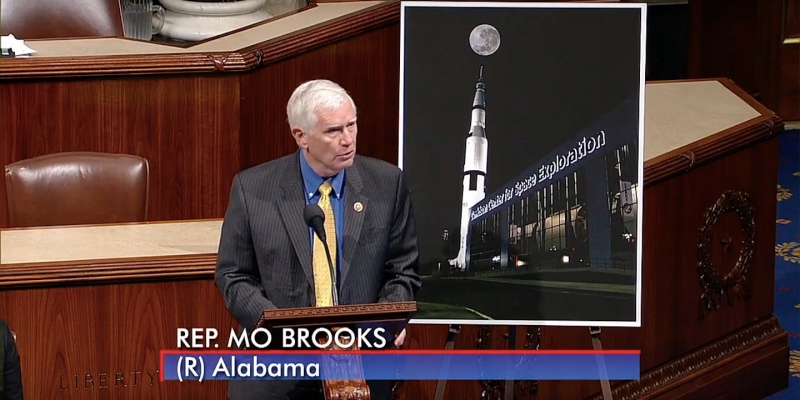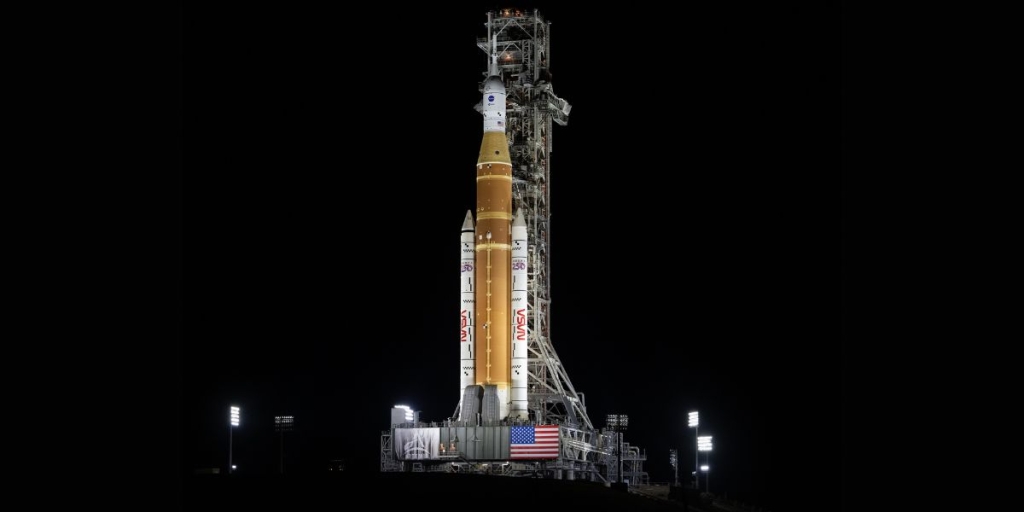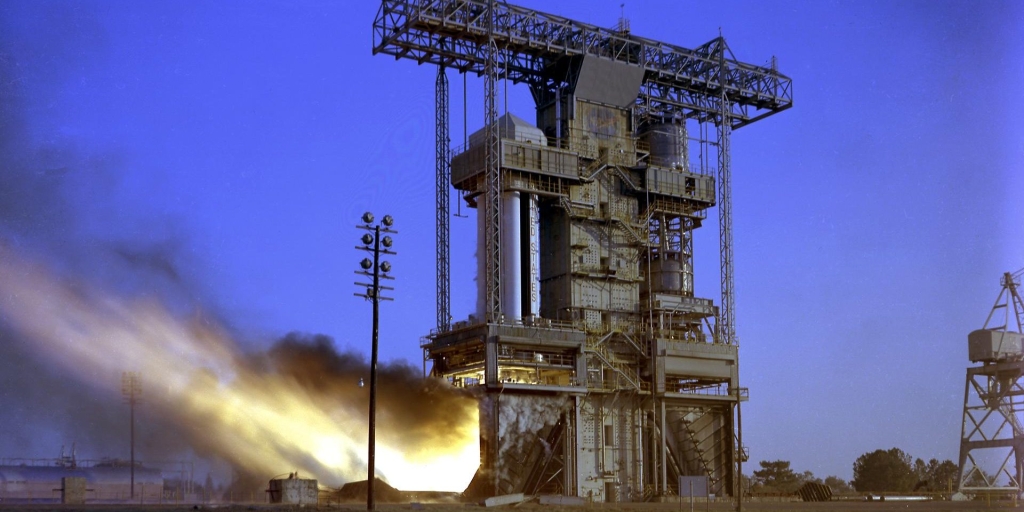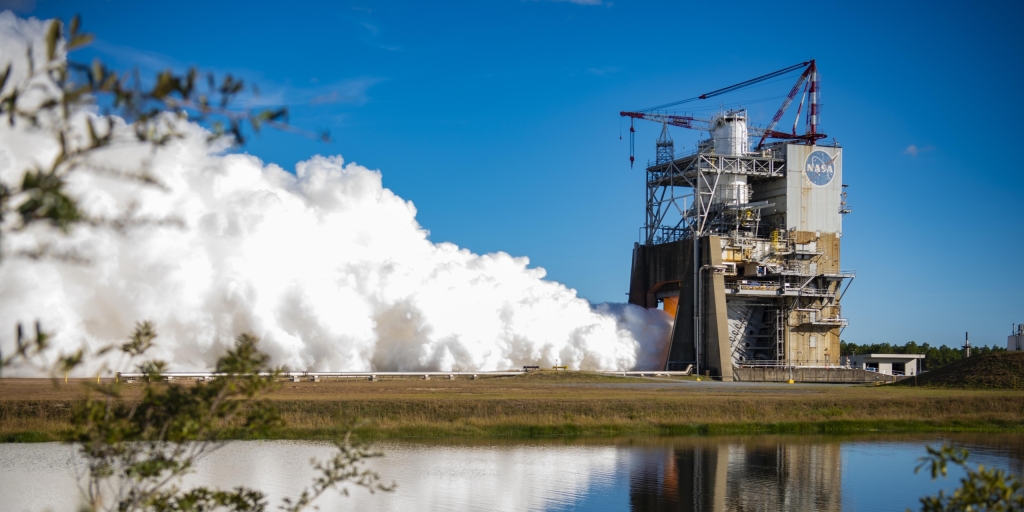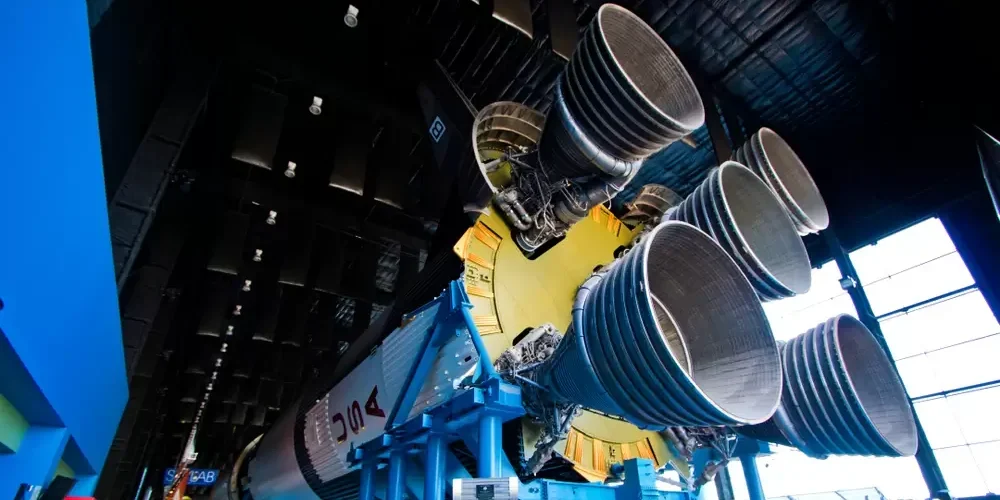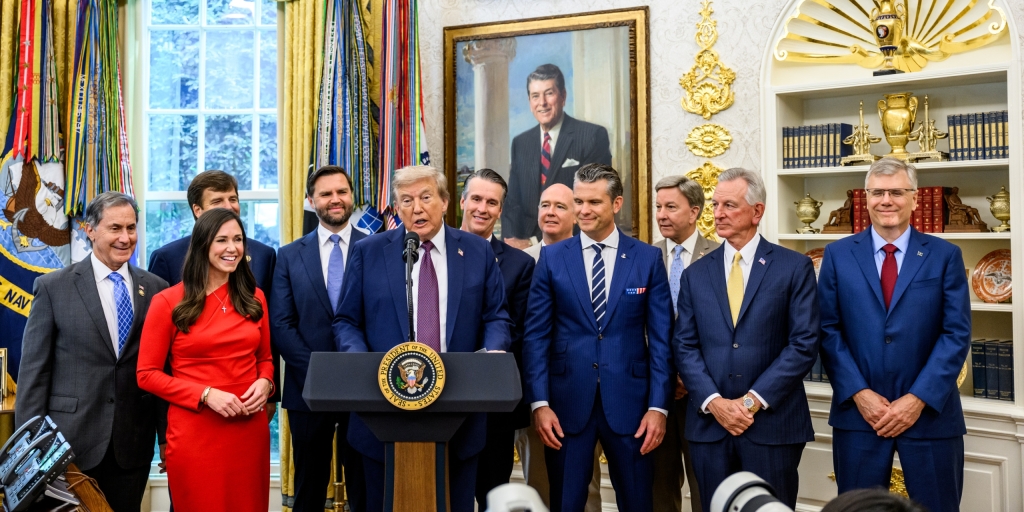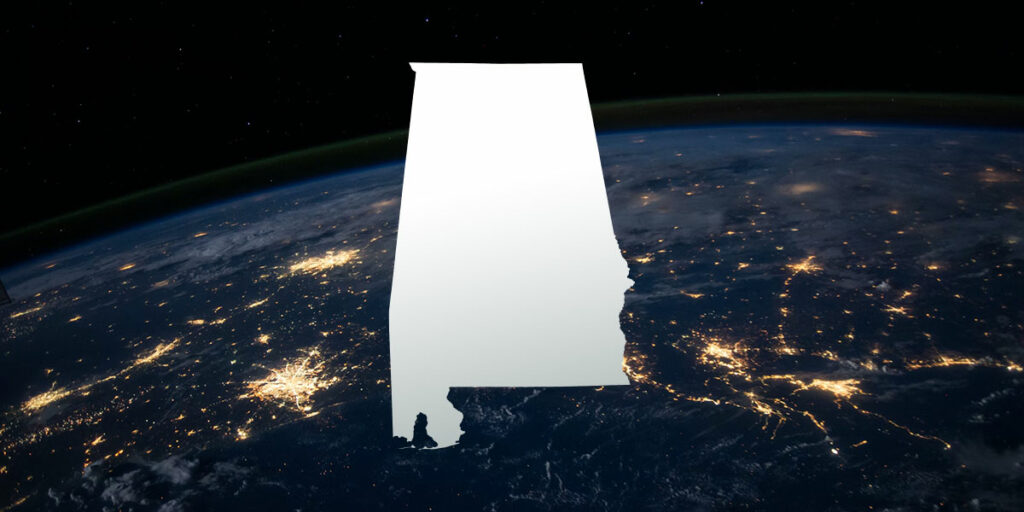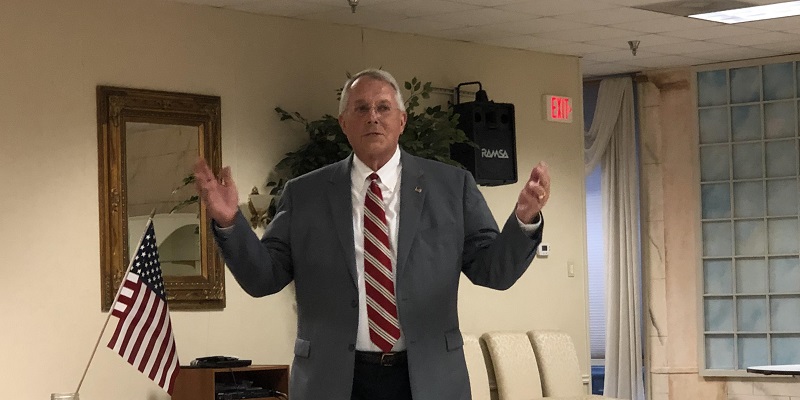Congressman Mo Brooks (AL-05) on Wednesday took the floor of the U.S. House in celebration of Apollo 11’s 50th anniversary and his North Alabama district’s role in making that famous mission successful.
He reminisced on growing up near enough to Marshall Space Flight Center that he remembered “the Earth shake and the dishes in our kitchen cabinets rattle as the [Saturn] V engines were tested nearby.”
Brooks went on to emphasize that Alabama’s Marshall Space Flight Center “is the birthplace of America’s space program.”
He honored the many individuals working behind-the-scenes in Huntsville who made this statement a reality, also delivering optimistic, inspirational remarks about the future of U.S. space exploration and scientific achievement.
“[M]ankind’s greatest achievements are yet to come [and] America will continue to accomplish the unimaginable in space for the benefit of all humanity,” Brooks emphasized.
Similar to comments made at Tuesday night’s Apollo 11 50th anniversary dinner at the U.S. Space and Rocket Center, Brooks also stressed that North Alabama would be playing a vital role in the next space frontier: The Artemis program which will take Americans back to the surface of the Moon and eventually to Mars.
He concluded, “As we reach for the stars, I have confidence that the Tennessee Valley, Marshall Space Flight Center, and Huntsville, where we say The Sky is NOT the Limit,’ will be instrumental in carrying American astronauts back to the Moon, to Mars, and beyond!”
Watch:
Brooks’ full remarks as follows:
Mr. Speaker, this week, America celebrates the 50th anniversary of one of mankind’s— and America’s— greatest achievements— walking on the surface of the Moon.
Although then only a child, I well-remember the Earth shake and the dishes in our kitchen cabinets rattle as the [Saturn] V engines were tested nearby.
Even now, 50 years after watching the Moon landing, I get chills remembering when Apollo astronauts landed and later planted the American flag on the Moon’s surface.
It was American ingenuity, boldness, technical prowess, and economic might that made this historic achievement possible.
I’m proud to say the legacy of the Apollo 11 Moon landing lives on in the Tennessee Valley of Alabama that I represent.
Some history is in order.
The Tennessee Valley’s Marshall Space Flight Center is the birthplace of America’s space program.
Americans generally, and Alabamians in particular, designed and engineered the Saturn V rocket that launched the historic Apollo 11 and took American astronauts to the Moon.
I will never forget the flames and the roar as our Saturn V rocket was launched and carried the Apollo 11 crew and vehicles to the Moon.
I remember with tremendous pride American Neil Armstrong’s words as he to set foot on the Moon, “That’s one small step for man, one giant leap for mankind.”
That giant leap, meant to benefit all mankind, is a prime example of American exceptionalism and helped cement America’s status as the best, most powerful, and most influential nation in world history.
When Neil Armstrong and Buzz Aldrin planted America’s flag on the Moon’s surface on July 20th, 1969, there was no doubt that America’s space program had passed the Russians and become the preeminent leader in space exploration, a position America maintains today.
This week, America not only reflects on the miraculous achievements of the Apollo 11 mission, but we also honor those who played a critical role in its ultimate success.
The Tennessee Valley is immensely proud of our pivotal role in landing a man on the Moon and, equally importantly, returning them alive to Earth.
Reflecting our pride in America’s achievement, there are two— that’s two— Saturn V rockets displayed at the United States Space and Rocket Center in Huntsville, Alabama.
These Saturn V displays help inspire the next generation to reach for the stars and achieve what now may be thought impossible.
While it is important to remember the historical achievements of the Apollo missions, it is also important to honor those who sacrificed their lives in the effort to achieve American greatness.
In that vein, Huntsville has named schools after Apollo Command Pilot Virgil “Gus” Grissom, Senior Pilot Ed White, and Pilot Roger Chaffee, each of whom died during a capsule fire during an Apollo 1 ground test.
After the Moon landing and return of Apollo 11 astronauts Buzz Aldrin, Neil Armstrong, and Michael Collins to Earth on July 24, 1969, Huntsville’s streets were awash with revelers.
German Rocket Scientist Wernher Von Braun said on the Huntsville courthouse steps that day, “My friends, there was dancing here in the streets of Huntsville when our first satellites orbited the Earth. There was dancing again when the first Americans landed on the Moon. I’d like to ask you, “don’t hang up your dancing slippers.”
Von Braun’s words remind us that mankind’s greatest achievements are yet to come, that America will continue to accomplish the unimaginable in space for the benefit of all humanity.
As we reach for the stars, I have confidence that the Tennessee Valley, Marshall Space Flight Center, and Huntsville, where we say “The Sky is NOT the Limit,” will be instrumental in carrying American astronauts back to the Moon, to Mars, and beyond!
Sean Ross is a staff writer for Yellowhammer News. You can follow him on Twitter @sean_yhn




